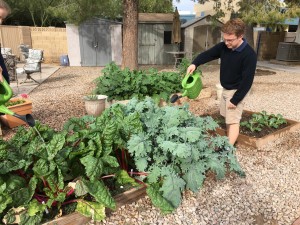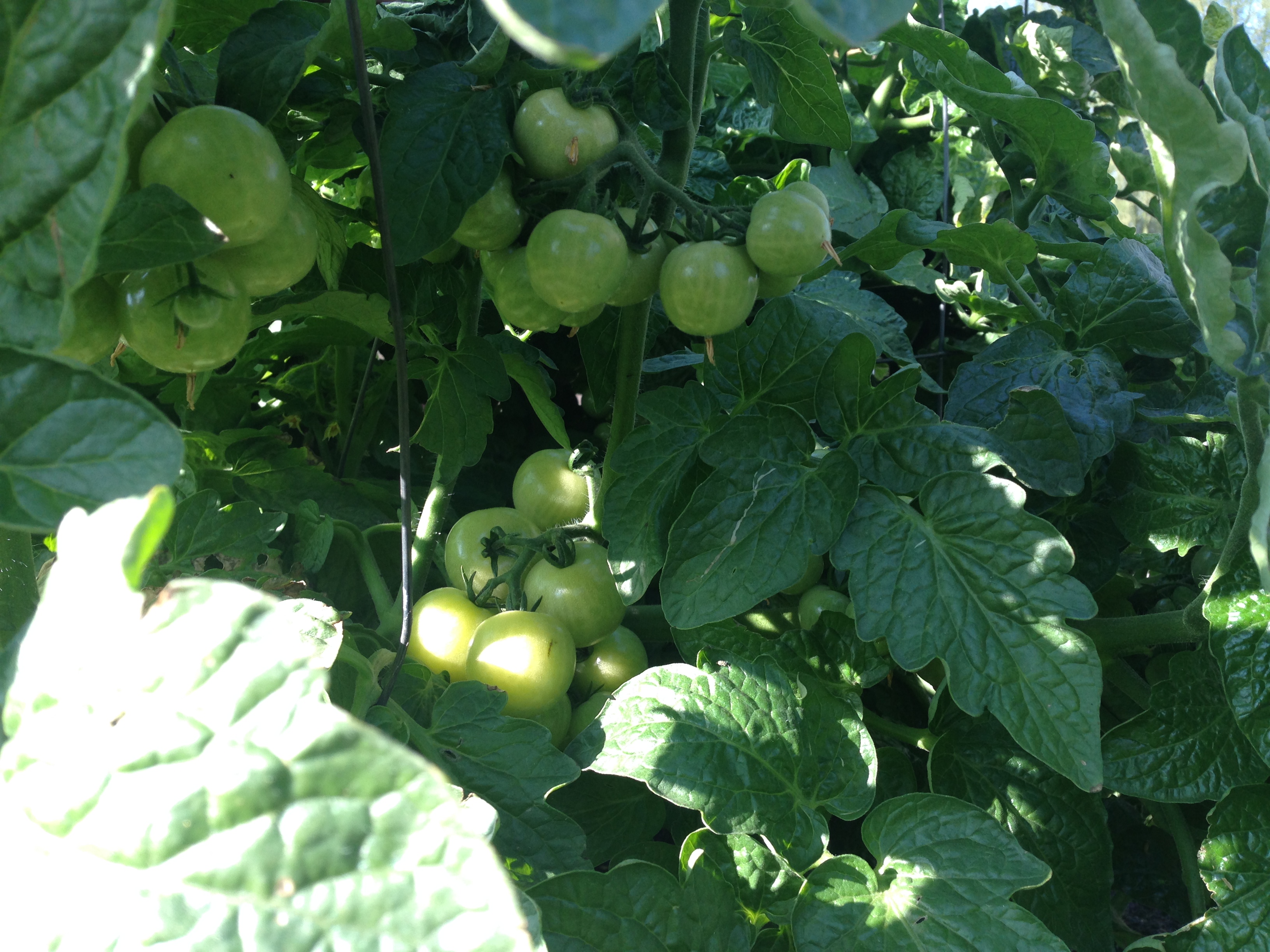By Rachel Dinh
If you walk behind the Teachers House, there are a few things you’ll notice that have always been there: the big pine tree, the lion fountain, and probably a few students getting help from teachers. But the lush, green gardens will probably stand out the most. Clusters of unripe tomatoes lie beneath distinct, pointed heirloom tomato leaves. Bright red rhubarb stems peek out amidst other leafy greens. This is the work of TPA’s Environmental Club.

Led by seniors Solange Steadman and Patrick Pagnozzi, the Environmental Club is running full speed ahead with its plans. “Environmental Club has kept its same belief since its creation,” Patrick says. “Our goal is to educate others and ourselves in two main areas: how our food is grown and how to grow it. Also to have a really pretty garden, but that’s a minor factor.”
On closer inspection of these garden beds, you’ll see the wide variety of plants that have been growing since the beginning of the year. The horse manure soil provided by Mrs. Kuntzelman makes an excellent environment to yield chard, rhubarb, basil, broccoli, bok choy, eggplants, tomatoes, and more. These fruits and vegetables are the product of the club members’ careful watering and Ms. Tobin’s guidance. Ms. Tobin oversees the whole club and manages the money raised from sales for seeds and gardening tools.
Gardening requires careful attention every day. Patrick describes the routine: “Solange and I usually water the garden every day, but Solange waters the garden most of the time. When we water the garden we tend to anything that the garden needs. For example, if a plant isn’t standing upright on its own we’ll put something in to help it grow.”
Now that the cold weather is coming in, a few changes will be made to the garden. The club plans to bring in plants that thrive in a cooler climate, such as carrots and radishes, and hopes to have all of the empty plots filled with squash.
Gardening yields benefits outside of the physical fruits and vegetables. Patrick has learned “how fun and rewarding raising a garden can be” and encourages more kids to join. “Everyone should have knowledge of how to grow food and how it’s grown. There are also many health benefits to owning and working in a garden.” He adds, “Plus it’s always fun to get your hands covered in dirt from time to time.”
And if you ever feel a need to make some rhubarb ice cream or perhaps a nice spaghetti sauce using some fresh, organic vegetables (while at the same time supporting your school) feel free to stop by the Environmental Club’s veggie stand outside of the Zelman Center. Patrick says, “We don’t have any set days when we sell our veggies but we typically put out fliers 1 to 2 days before we have a sale. If anyone wanted to buy anything when we are not selling, just come tell either Solange or me at lunch or paideia and we will happily sell you some.”
